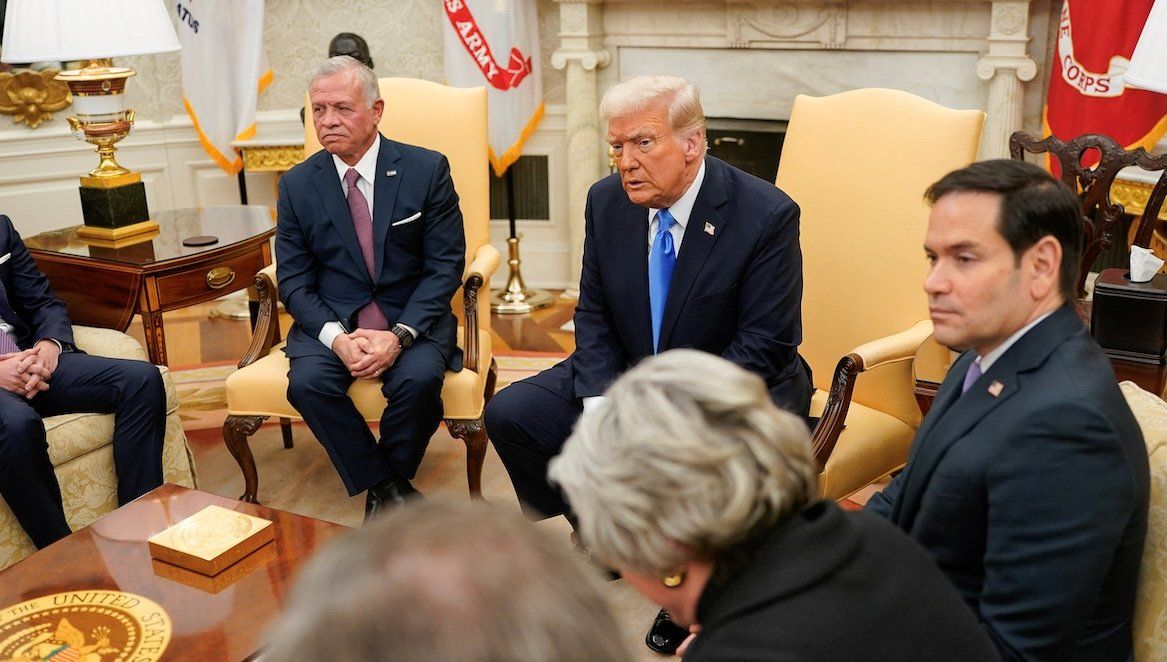King AbdullahII of Jordan visited US President
Donald Trump at the White House on Tuesday to discuss Gaza’s post-war future, including Trump’s plan to relocate some 2.1 million Palestinians to other countries in the Middle East. Before the meeting, Abdullah
announced that Jordan would take in 2,000 sick children from Gaza, an offer that Trump termed a “beautiful gesture.”
As for the rest of the population, the monarch said he would “wait for Egypt,” which has been leading negotiations so far, to weigh in. “I think we have to keep in mind there is a plan from Egypt and the Arab countries,” Abdullah said. “I think the point is, how do we make this work in a way that is good for everybody?”
Trump had threatened to withhold aid from Egypt and Jordan unless they receive Palestinians but suggested on Tuesday that “I do think we’re above that.” Trump’s vision for the territory remains unchanged, however: “[W]ith the United States being in control of that piece of land … you’re going to have stability in the Middle East for the first time.”
Meanwhile, in Israel, Prime Minister Benjamin Netanyahu’s security cabinet unanimously endorsedTrump’s deadline for the release of the remaining hostages: The US president said Monday that all hostages must be returned by Saturday, or “Let all hell break out; Israel can override it.” Trump’s deadline came in response to Hamas saying it would delay the next hostage release, set for Saturday, and accusing Israel of violating the ceasefire.
Who’s gained ground – and who’s lost? According to Eurasia Middle East analyst Greg Brew, Jordan’s placating of Trump was “a win for Abdullah, who depends on US aid, and who has adamantly rejected the idea of displacement. This doesn't mean Trump has given up, only that we shouldn’t expect mass displacement of Gazans to Jordan any time soon.”
And despite Trump’s stark message about the hostages, Brew believes there is still room to maneuver. “It’s possible Hamas and Israel get through this latest impasse,” he says, “but it points to the fragile nature of the ceasefire and the unpredictable role Trump is playing.”
